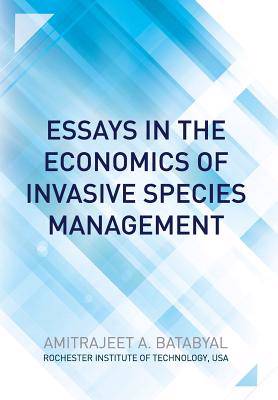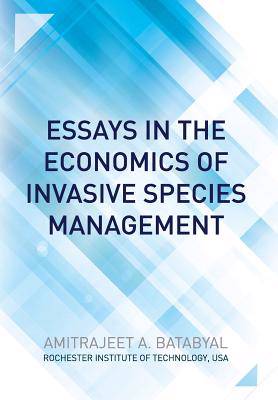
- Afhalen na 1 uur in een winkel met voorraad
- Gratis thuislevering in België vanaf € 30
- Ruim aanbod met 7 miljoen producten
- Afhalen na 1 uur in een winkel met voorraad
- Gratis thuislevering in België vanaf € 30
- Ruim aanbod met 7 miljoen producten
Zoeken
€ 90,45
+ 180 punten
Omschrijving
There is no doubt that the phenomenon we now call globalization has brought many benefits to the citizens of our heterogeneous world. Inter alia, this phenomenon has resulted in the increased mobility of humans, goods, and services from one part of the world to another. International trade in both final goods and services and in various factors of production has risen, and this rise has generally seen the welfare improving for all the involved parties. This rise in international trade in particular and of mobility more generally has also led to the spread of all manner of animals, plants, and other organisms from places where they are native to new locales, where they are not. As noted by Vitousek et al. (1997), Mooney (1999), and others, it is salient to comprehend that although this movement and spread of animal and plant species from one part of the world to another predates the modern era of globalization, the phenomenon of globalization has accelerated this mobility. Animal and plant species that have moved from a part of the world where they are native to another part of the world where they are not are said to be invasive species. Such species are also referred to as "alien," as "exotic," and as "non-native" species. For the purpose of consistency, we shall use the term "invasive," in this chapter. Olson (2006) points out that this movement of animal and plant species can occur naturally, as a result of specific ecological processes or as a result of deliberate human activity. In addition, even if we restrict attention to invasive species introductions that are the result of conscious human activity, such introductions can be either intentional or unintentional in nature. Humans have been intentionally introducing animal and plant species into parts of the world where they are not native, for many decades. These intentional introductions broadly fall into two categories. The first category consists of introductions that are largely ornamental in nature. Exotic pets such as fish, parrots, and all manner of orchids readily come to mind. The second category is made up of introductions that form the basis of what is now known as biological control. The basic objective here is to use a specific animal or plant species that is a predator of another prey species whose population is sought to be controlled. McConnachie et al. (2003) review ten benefit-cost studies of biological control programs and note that such programs can be very successful. However, the work of Nogales et al. (2004) shows that biological control programs can also go awry and give rise to unintended consequences. Most countries today have protocols for dealing with the intentional introductions of invasive species, although it should not go unsaid that the quality and the effectiveness of these protocols vary considerably.
Specificaties
Betrokkenen
- Auteur(s):
- Uitgeverij:
Inhoud
- Aantal bladzijden:
- 414
- Taal:
- Engels
Eigenschappen
- Productcode (EAN):
- 9780988919310
- Verschijningsdatum:
- 16/09/2013
- Uitvoering:
- Hardcover
- Formaat:
- Genaaid
- Afmetingen:
- 156 mm x 234 mm
- Gewicht:
- 739 g

Alleen bij Standaard Boekhandel
+ 180 punten op je klantenkaart van Standaard Boekhandel
Beoordelingen
We publiceren alleen reviews die voldoen aan de voorwaarden voor reviews. Bekijk onze voorwaarden voor reviews.











